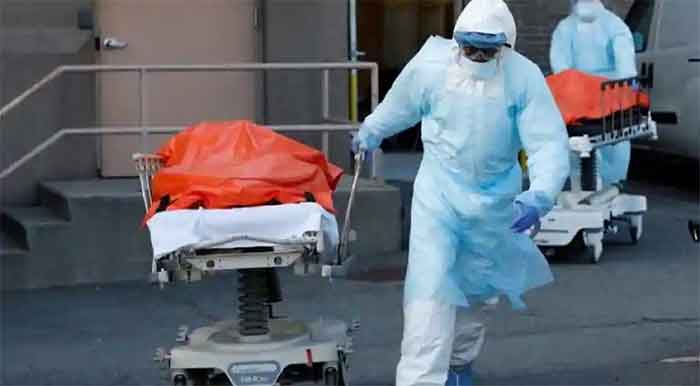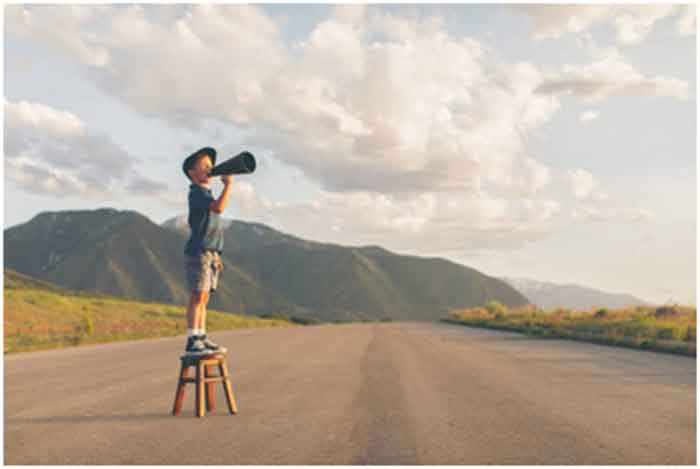
The on-going pandemic is unprecedented. None will question this statement today. It’s unprecedented in terms of not only number, extent, speed, etc. It’s also without any precedent in terms of the power and resources the world economy, capitalist, exploitative, owns and the vulnerability the economy faces. It’s the economy’s sheer hapless condition, plain powerlessness, downright inability. Together with these, the economy’s political condition is in utter jeopardy, which appears rudderless, listless.
The exploiting economy has shown its power and powerlessness. It pushed a huge size of labor into the jaws of destitution and death as it is confident that there awaits a huge reserve army of labor which it can consume at appropriate opportunity. This is capital’s power, indifferent and arrogant.
The economy had to face setbacks as it found many of its markets squeezed. It threw out and driven away many of the labor it pressed into machines for its accumulation. It finds consumption, necessary for reproduction, cut for many months and in countries. Shuttered down were sectors of the economy. The blood-sucking economy overwhelming the world stood powerless in front of the pandemic.
The Food and Agriculture Organization (FAO) index tells:
# A steep year-on-year increase of world prices for food commodities in November, hitting an almost six-year high, with the index posting its sharpest monthly spike since July 2012. The index, which reflects monthly changes for a basket of cereals, oilseeds, dairy products, meat and sugar, hit the highest level since December 2014. The index rose to 105.0 points in November against 101.0 in October, a 3.5 per cent monthly increase.
# In this situation, 45 countries need external help to secure enough food.
# The pandemic is “an important driver of the levels of global food insecurity”.
# The price hike is an extra burden for those having fallen income because of the pandemic. “The pandemic is exacerbating and intensifying already fragile conditions caused by conflicts, pests, and weather shocks […]”
More than a billion people worldwide could be pushed into extreme poverty, apprehended the United Nations Development Programme (UNDP).
Fish accounts for more than 20 per cent of animal protein for 3 million people. Fishing activities have been reduced in Africa, Asia and Europe due to sanitary measures/physical distancing, limited supply of inputs and labor shortage (FAO, How is COVID-19 affecting the fisheries and aquaculture food systems, 2020).
A UNDP-study found:
# More than 200 million people could be driven into extreme poverty by the severe long-term impact of the pandemic, which will push up the total number to more than one billion by 2030.
# Eighty per cent of the pandemic-induced economic crisis would persist for over a decade, stalling the pre-pandemic growth trajectory.
World Bank (WB) projections suggest the pandemic could imperil progress made in poverty reduction by pushing between 71 million and 100 million people into extreme poverty in 2020, thereby increasing the global extreme poverty rate for the first time since 1998. (Projected Poverty Impacts of COVID-19 (Coronavirus), brief, June 8, 2020)
In October 2020, the International Monetary Fund (IMF) estimated the global economy would contract by 4.4 per cent in 2020. In advanced economies, a much steeper decline of 5.8 per cent may occur, contrasting with a smaller contraction of 3.3 per cent in emerging economies. The IMF warned that the diverse impacts on low-income households would be acute. (World Economic Outlook Update, October 2020: A Long and Difficult Ascent, Washington, DC)
Due to the pandemic, the world merchandise trade is estimated to decline by 13 per cent to 22 per cent. (WTO, Frequently asked questions: The WTO and COVID-19, 2020)
According to the WB forecasts, the global economy will shrink by 5.2% this year. That would represent the deepest recession since the Second World War, with the largest fraction of economies experiencing declines in per capita output since 1870. (Global Economic Prospects, June 2020)
A WB report said: “The current moment of crisis is extraordinary. No prior disease has become a global threat so quickly as COVID-19. Never have the world’s poorest people resided so disproportionately in conflict-affected territories and countries.”
The WB report said:
# Extreme global poverty is apprehended to rise in 2020 for the first time in over 20 years due to the disruption caused by the “extraordinary” pandemic.
# The pandemic may push down an additional 88 million to 115 million people into extreme poverty this year, with the total rising to 150 million by 2021, depending on the severity of the economic contraction.
# Extreme poverty is likely to affect between 9.1 percent and 9.4 percent of the world’s population this year. That would represent a regression to the rate of 9.2 percent in 2017.
The issues are not only food price and poverty, although these ultimately affect, and in real sense threaten, capital exploiting the labor. This threat in different forms including reduced consumption, instability and rebellion compels capital to be “benevolent” – reduce poverty.
The ILO said:
“[A]n estimated 266 million wage earners worldwide earn less than the hourly minimum wage in place in their countries – either because they are not legally covered, or because of non-compliance. […] 327 million wage earners are paid below or at the minimum wage […] 266 million wage earners around the world, representing some 15 per cent of all wage employees, earn less than the minimum wage.” (Global Wage Report 2020-21: Wages and minimum wages in the time of COVID-19, 2020, Geneva)
Other facts/sources don’t give a good picture.
# The sectors hardest hit include wholesale and retail trade, accommodation and food services, and other sectors in which women tend to be over-represented. The hardest-hit sectors account for 40 per cent of all female employment, compared to 36.6 per cent for men. (ILO, Monitor: COVID-19 and the World of Work, 5th edition, briefing note, June 30, 2020, Geneva)
# In low-income countries, informal employment accounts for up to 80 per cent of total employment in these hardest-hit sectors. (ILO, Impact of Lockdown Measures on the Informal Economy, brief, April 2020, Geneva)
# On average, Small and medium-sized enterprises have been, more adversely affected than very large companies. (OECD, “Further empirical evidence on COVID-19 SME impact”, in Coronavirus (COVID-19): SME Policy Responses, 8–11, Updated on July 15, 2020)
# The effects were particularly devastating for micro and small enterprises, which employ over 95 per cent of the 1.6 billion informal economy workers that have been significantly affected. (ILO Monitor: COVID-19 and the World of Work, 3rd edition, briefing note, April 29, 2020, Geneva)
# Economic lockdowns and the temporary closure of millions of workplaces have had enormous effects on labor markets across the world, disproportionately affecting lower-paid workers. (ILO, Global Wage Report 2020-21: Wages and minimum wages in the time of COVID-19, 2020, Geneva)
Therefore, it can be claimed that condition of the labor is perilous.
It’s not only the condition of the labor, a part of capital that exploits labor and nature is also in a dire situation.
However, the part of capital in the War Industry is not facing such a situation. Imperialist activities including diplomatic maneuvers, budget allocations in imperialist states, the MSM reports and analyses, factional fights within the ruling classes in the imperialist countries show the vibrant condition of the War Industry/Economy.
But, the other part is feeling the bite of the pandemic. This sting of the pandemic is being reflected in the politics in a number of imperialist states.
Yousef Al-Benyan, chairperson of the Business Twenty (B-20), which represents businesses across the G-20 and sectors in economy, said: The global economy is in its worst state in a century. The pandemic has pushed the economy over the cliff. He made the comment in a statement prior to the recently concluded G-20 summit.
Capital will put its legs on shoulders of the labor to get “rescued” from this “over the cliff” condition. That’s increasing profit to adjust the profit lost due to the pandemic.
There’s the debt-question. Rating agency S&P Global said: Global debt is expected to reach $200 trillion this year. This increase is powered by economic dip due to the pandemic, and extra borrowings by governments, firms and households.
The Institute for International Finance (IIF) representing more than 400 banks and financial institutions worldwide, has expressed hope: Global debt to skyrocket to a record $277 trillion by the end of the year as governments and companies continue to borrow in response to the pandemic.
The public, ultimately the labor, will make all payments the debts demand. Therefore, it’s labor’s burden, not capital’s. The creditors will not incur any loss. Rather, they will gain while the labor will suffer.
The labor’s condition is further shown by the following facts:
# The pandemic has affected the 81 per cent (2.7 billion workers) of the global work force due to full or partial closure of work places. (ILO, COVID-19 causes devastating losses in working hours and employment, 2020)
# The International Trade Union Confederation (ITUC) finds companies in 87 of the 100 surveyed countries are laying off workers because of the pandemic. (ITUC global COVID-19 survey, 2020, Brussels)
# The ILO estimated that in the first month of the pandemic, the overall earnings of informal workers globally might have declined by up to 60 per cent. This drop is estimated to have led to significant increases in the numbers of working poor across the world. Relative poverty among workers in the informal economy worldwide may have increased from 26 per cent to 59 per cent over the first month of lockdown. (ILO Monitor: COVID-19 and the world of work, 3rd edition, briefing note, April 29, 2020, Geneva)
# Groups in vulnerable situations including migrant workers, 164 million worldwide, have been among the hardest hit. (ILO, Protecting migrant workers during the COVID-19 pandemic: Recommendations for policymakers and constituents, policy brief, April 30, 2020, Geneva; and, UN, United Nations Entity for Gender Equality and the Empowerment of Women, “Addressing the Impacts of the COVID-19 Pandemic on Women Migrant Workers”, guidance note, 2020)
Along with the pandemic, capital is increasing assault on the labor to reap profit from the pandemic. People in a number of countries including Venezuela facing imperialist sanctions are in graver situation, which is due to the sanctions. The capitalist economy’s character, and its role behind the pandemic will turn crystal clear if capitals invested for researches on the War Industry and on health/virus/drugs, etc. areas are compared. The game stands as, the capitalist world system is behind this pandemic, its parts, along with the peoples, are being hit by the pandemic, and, then, the system transfers the burden on the peoples in countries while it carries on its pandemic- and war-business, and reaps profit from the entire field of exploitation. Thus, at this pandemic-point, at the end of 2020, the labor, and broadly the common people in countries are in a precarious condition. Precarious condition of the peoples is the product of the world capitalist system.
Farooque Chowdhury writes from Dhaka, Bangladesh.
SIGN UP FOR COUNTERCURRENTS DAILY NEWSLETTER














































